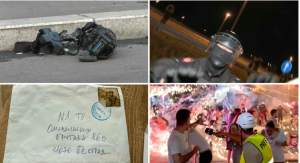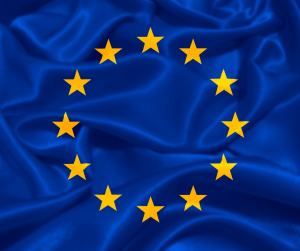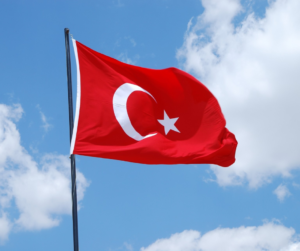European Parliament member Kathleen Van Brempt told an interview with N1 that the Serbian government is heading in the wrong direction. Students, she said, are not only fighting corruption — they are fighting for their future. “I strongly believe that their future lies in a free and fair society, in a democracy. That is why I think it is important that the possibility of free and fair elections in Serbia comes very soon.”
N1: We have seen a very sharp European Parliament resolution and the harshest European Commission report on Serbia to date. Do you think the resolution finally pushed the Commission to respond to what the European Parliament has been saying for quite some time?
“Absolutely. In the European Parliament, there is a broad majority. To be honest and frank when it comes to Serbia, Serbia is a wonderful country, wonderful people, and I hope their future lies within the European Union, but it’s up to the Serbian people to decide on that. But if they want to be part of the European Union, it’s important that you have a well-functioning democracy, with all the parts of that well-functioning democracy. And the way the government is dealing now with the student protests is really a bad example. And so in the Parliament, we have established a broad majority and we pushed the Commission to go in that direction. With Marta Kos, we have a Commissioner who is also very close to the Serbian people, but is also very frank. And the two of them are really connected now, and you see that finally the European Commission is telling the government in Serbia what they need to do if they want to belong to the European Union. And again, it’s up to the Serbian people to take that decision, but for that, they need free and fair elections.”
N1: It has now been a year since the first attacks on students, yet no one has been held accountable. We even saw fresh attacks in Novi Sad just a few days ago, and some of the attackers, as we know, were pardoned by the president. How do you view all of this? There is still no accountability for the attacks, no accountability for the collapse of the canopy in Novi Sad, yet the country claims to be on the European path.
“Well, it isn’t. Let that be crystal clear. It isn’t. And I think what happened in Novi Sad a year ago, but also in the course of all the events up until now, is a really bad example of in what direction Serbia should go. Apart from a few engineers, nobody has been indicted or held responsible in any way for the disaster that took place there. There is also a political responsibility that is linked to corruption in this country. And if you want to combat corruption, you have to be quite frank about it. Since then, and since the protests and the attacks, I have the impression, and more than just an impression, that the government is looking in the wrong direction. It is not the students, who have put very important demands on the table, who should be attacked by the government. It is the attackers who need to be addressed. In that sense, this is an example of the bad direction Serbia is taking at this stage.”
N1: We hear quite frank and honest comments from MEPs, yet when officials from member states visit — the German Foreign Minister was here the other day — they say they support Serbia on its European path. But when I asked him about everything mentioned in the resolution and the report — the attacks on students, the judiciary, teachers, and especially the media — he gave a rather vague answer. Is this just diplomacy, or is something else at play?
“Well, luckily – and most people don’t know that, but that’s fine because it’s also very complex – in the European Union, you have the Parliament, the Commission, and the Council. The Council consists of the member states. And within the member states, you have countries that have a lot of interests, for example economic interest, in Serbia. Those interests often take precedence in their discourse and narrative. Luckily, there’s the European Parliament and more so, it goes gradually, also the European Commission which is now taking a very firm stance. And that needs to be crystal clear. I’m very much in favor of Serbia’s path toward European integration. I think when we look at enlargement from the European perspective, that is to the benefit of the people in Europe today, the people in the Balkans today, also Ukraine and other countries. It is a common interest that we need to pursue. And it also is in the interest of the Serbian people because it’s about democracy, but also about prosperity, about the welfare system. But it has to be very clear. We cannot accept any country, not just Serbia, any country that doesn’t comply with the basic values of the European Union. Those values are democracy, freedom of speech, an independent judiciary, and the simple fact that you have the freedom to protest. Also in my country, sometimes people protest and I think, why? I do not agree with them. But the mere fact that they can do that is an integral part of democracy. And I’m not with these governments in the European Union that appease this government, because this government is taking the wrong direction. It looks toward Russia, it looks toward Orban within the European Union, who also looks toward Russia. And I think the pathway into European integration is the pathway of democracy.”
N1: The government still hopes to open Cluster 3 by the end of the year. It keeps pointing to the fact that the Commission has been recommending the opening for the fifth year in a row. But the very fact that it is not being opened sends a message in itself. Do you think the government realizes that?
“I cannot look into the minds of this government, it’s very difficult, I have to say. We always say that the enlargement process is merit-based. It’s not just about politics, although politics matter, it’s about the application of all the laws, and again, democracy, democracy, democracy. But it’s not just ticking boxes, checking whether certain legislation is in place. It is also about how you implement and enforce that legislation. Let me give the example of free media again. Free media are part of what makes a democracy. Otherwise, if only a government can have access to the media and the opposition or students cannot, or only in a very limited way, then you don’t have a fully functioning democracy. If we look at Serbia today, it has gone completely in the wrong direction. Opposition parties do not have equal access to media. And so, what we from the European side are looking at is not just ticking that box, it’s about results. It’s not about some cosmetic changes here and there, no, it’s about the results.”
N1: But, at the same time, the government says this is a “European job”, that it’s not only up to them, that civil society also has a role, and that sometimes civil society is to blame when things on the European path do not move forward. Those were the words of the Parliament speaker. You speak regularly with civil society — how do they react to such comments from officials?
“I think Serbia has a vibrant civil society with many organizations, and you should be very lucky to have that. It is the core of your society — that people can speak out, organize themselves, have a critical voice. That integral part has to be listened to. In the end, it is the Serbian people who will decide through free and fair elections. But if civil society says today that it is not enough, then it is not enough. The government has to enter into dialogue — and only through open and fair dialogue can Serbia move in the right direction.”
N1: The EU insists on two specific things for free and fair elections: the voter register and the media regulator REM. Right now eight out of nine REM members have been elected, the ninth has not — even though everyone agreed on two names to choose from. Then four members announced they would resign and blamed the government. How do you see the latest developments? Those who want to resign say the government is trying to deceive them, the people, and the European Union. We did hear positive comments from the Commission when eight members were elected — Commissioner Kos even welcomed it — but nothing has happened since.
“Well, either the government plays this fairly — and that is what I meant when I said it is not about cosmetics — there has to be a clear result. A clear result would be that nine members are appointed in accordance with the law. That is not the case today. And that proves the government does not want a fair process. Until nine people are installed in that body in accordance with the law, it will not be enough for the European Union – neithter for the Commission nor for the Parliament. We will keep insisting: not cosmetics, but real results. Real results mean appointment in accordance with the law. Because this is not about the nitty-gritty of names. It is about having a body that ensures a free media landscape, so that the government, opposition, students, and civil society all have access to free media and a free democracy. That is the goal.”
Source: N1




